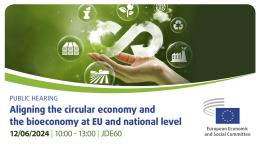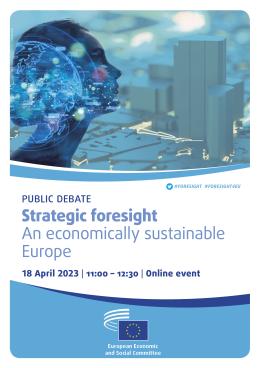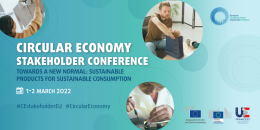European Economic
and Social Committee
Кръгова икономика
Преходът към кръгова икономика е на челно място в дневния ред на ЕИСК като решение за борбата с изменението на климата и опазването на нашата планета. Това е голяма възможност за гражданското общество, тъй като може да спомогне за:
- повишаване на конкурентоспособността на европейската промишленост;
- насърчаване на устойчив икономически растеж;
- създаване на нови работни места.
Линейният модел на производство и потребление „добивам-произвеждам-изхвърлям“, който понастоящем все още доминира в нашата икономика, води не само до разхищаване на ресурси, но и подкопава борбата с изменението на климата. За разлика от него кръговата икономика представлява модел за регенерация и възстановяване, съсредоточен върху създаването и запазването на икономическата стойност, за борба с глобалните предизвикателства за околната среда като изменението на климата, загубата на биологично разнообразие и замърсяването, като същевременно носи икономически ползи.
Добрата новина е, че преходът към кръгова икономика вече се осъществява по места. Заинтересованите страни от гражданското общество в т.ч. предприятията, синдикатите, академичните среди, и общностите на знанието, младежките организации, както и НПО и други групи по интереси разработват и прилагат редица кръгови инициативи на местно и регионално равнище. Катализирането на кръговите решения и поемането на водеща роля от съответните заинтересовани страни е най-добрата възможност Европа да ускори прехода към кръгова икономика.
Европейската платформа на заинтересованите страни в областта на кръговата икономика, съвместна инициатива на ЕИСК и Европейската комисия, беше създадена през 2017 г., за да обедини свързаната с кръговата икономика общност в Европа. Водена от заинтересованите страни, платформата подкрепя прехода на Европа към кръгова икономика, като насърчава диалога, споделянето на знания и обмена на най-добри практики.









